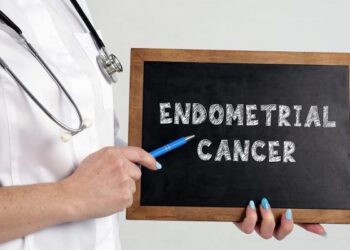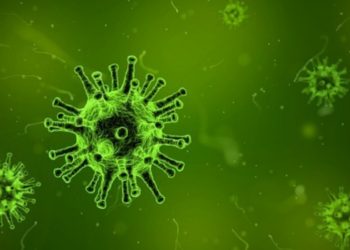AbbVie (NYSE: ABBV), in cooperation with Neurocrine Biosciences, Inc. (NASDAQ: NBIX), today announced the completion of a Phase 2b clinical trial evaluating the safety and efficacy of elagolix alone or in combination with add-back therapy compared to placebo. The trial was conducted in women with heavy menstrual bleeding (HMB) associated with uterine fibroids. Preliminary results showed that all of the elagolix treatment arms, with and without add-back therapy, reduced heavy menstrual bleeding as compared to placebo (p<0.001). The study’s primary endpoint was a composite design where subjects had to achieve a menstrual blood loss (MBL) volume of less than 80 mL as well as a 50 percent or greater reduction in MBL volume from baseline at the final study month as measured by the alkaline hematin method.
Uterine fibroids (also called leiomyomas or myomas) are noncancerous muscle tissue tumors of the uterus.1 Fibroids are most common in women aged 30-40 years but can occur at any age.1 They can range in size from nearly undetectable to bulky masses that can distort the uterus.2 Fibroids can be asymptomatic but in some women cause symptoms such as: longer, more frequent, or heavy menstrual bleeding; menstrual pain; vaginal bleeding at time other than menstruation; pain in the abdomen or lower back; pain during sex; difficulty urinating; frequent urination; constipation or rectal pain.
“The positive results from this trial represent an important milestone in the development of elagolix as a potential new treatment option for women suffering from heavy menstrual bleeding associated with uterine fibroids,” said Michael Severino, M.D., executive vice president, research and development and chief scientific officer, AbbVie. “Our clinical research with elagolix for the treatment of uterine fibroids complements ongoing Phase 3 endometriosis research. These two development programs demonstrate AbbVie’s continued commitment to therapeutic advances in women’s healthcare.”
Among the most common adverse events (AEs) were hot flush, headache, nausea, and vomiting. Some AEs such as hot flush were more frequent in the elagolix only treatment arms as compared to the placebo and elagolix with add-back therapy treatment arms. Reduction in bone mineral density associated with elagolix alone was attenuated when elagolix was co-administered with add-back therapy.
Discontinuations due to AEs were slightly greater for the elagolix 600 mg once-daily (QD) treatment arms with and without add-back therapy as compared to elagolix 300mg twice-daily (BID) treatment arms with and without add-back therapy.
The Phase 3 program is targeted to begin the first quarter of 2016 and will include two replicate, pivotal, six-month efficacy and safety studies followed by a six-month safety and efficacy extension study. The primary endpoint in Phase 3 studies will be the same as that employed in the Phase 2b study; percent of subjects with reduction in uterine blood flow as measured by the alkaline hematin method. Final results from this 2b trial will be presented at a medical conference in the future. Elagolix Uterine Fibroid Phase 2a data have been accepted for presentation at the 2015 Annual Meeting of the American Society of Reproductive Medicine in Baltimore, October 2015.
Trial Design
The Phase 2b trial (M12-813) is a 24-week, randomized, double-blind, multicenter, placebo-controlled, two cohort-design study that evaluates the safety and efficacy of two different elagolix treatment regimens (300 mg BID and 600 mg QD) alone and in combination with two different strengths of add-back therapy (estradiol/norethindrone acetate). It was conducted in approximately 567 premenopausal women, age 18 to 51, with HMB associated with uterine fibroids, at approximately 100 sites in the United States, Canada, Puerto Rico, Chile, and the United Kingdom.
About Elagolix
Elagolix is an oral agent currently being investigated for the inhibition of gonadatropin releasing hormone (GnRH) receptors in the pituitary gland which ultimately reduces circulating sex hormone levels.
To date, elagolix has been studied in over 40 clinical trials totaling more than 3,000 subjects. Phase 3 trials of elagolix for the management of endometriosis-associated pain are also ongoing.

















